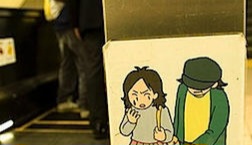
Consent matters! Even when it comes to taking photographs and videos of others. Japan gets it and is set to introduce the country’s first law against taking sexually explicit photos and videos without the knowledge of the other.
A bill has been submitted in the Japanese Diet, the national legislature of the country, to crack down on people who take surreptitious photographs. This would make it illegal to snap voyeuristic images of a sexually exploitative nature, according to a report in Japan Today.
Pegged as a bill against “photo voyeurism”, it will ban upskirting and secret filming of such acts.
The reforms which are part of an overhaul of Japan’s laws on sex crimes will be passed in June. They explicitly prohibit the taking, distribution and or possession of photographs of someone’s genitals without their consent, reports the BBC. They also criminalise the act of taking photographs of people being manipulated without their knowledge into sexual positions.
Offenders would face imprisonment of up to three years or a fine of up to 3 million Japanese yen, the report says.
The bill has put the spotlight on upskirting, which is a common sexual offence but is often taken lightly.
Under the new law, which bans people from taking pictures up someone’s skirt, violators would face imprisonment of up to three years or a fine of up to 3 million yen. Representational picture/Reuters
What is upskirting?
Upskirting is the act of taking a sexually intrusive photograph or video under someone’s clothes without their permission. It often targets women and hence the name upskirting – going up someone’s skirt.
Such an offence usually takes place in public places among crowds – public transport, pubs, nightclubs – when it is difficult to spot the miscreant.
However, it is not a recent phenomenon. There have been instances in which people (invariably men) have placed cameras on their shoes and photographed “up” a woman’s skirt for prurient purposes. Other instances have involved placing cameras under stairs where women in dresses or skirts were likely to pass by, according to a report in The Conversation. (FirstPost)
